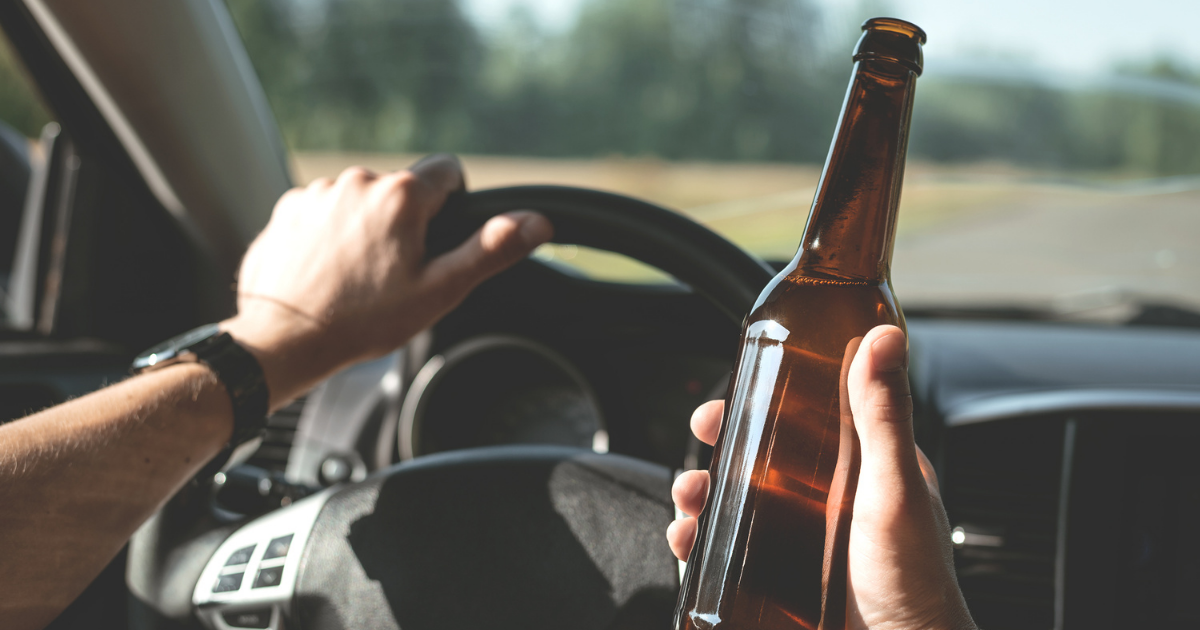What Is National Drunk and Drugged Driving Prevention Month?

Unfortunately, car accidents unfortunately happen all the time. Around 30,000 people die in car accidents every year, and although not every accident will cause a death, car accidents are preventable.
Most car accidents involve some form of human error. One of the most common is drunk driving or driving under the influence of drugs. December is National Drunk and Drugged Driving Prevention Month, so this discussion provides some information and reminds you to be safe on the roads.
Impaired Driving Statistics
When you get behind the wheel, you take responsibility for your actions. Whether you have a lead foot or believe stop signs are mere suggestions, if you cause an accident, you may be liable for damages.
The same is true of driving impaired by alcohol or drugs. Approximately 30 million people drive drunk each year, and 10 million drive while impaired on drugs. Although the drinking age in all 50 states is 21, almost 20 percent of drunk drivers fall into the 16- to 25-year-old age bracket. More shocking is that over 11 percent of people who drive impaired by drugs are younger.
This can create a deadly combination. Younger drivers are more inexperienced drivers. Even without drugs or alcohol in their system, they are more likely to be involved in an accident because they lack experience.
Add that on top of the fact that December is a holiday month, it can make for a tragic season. It is also no coincidence that December is National Impaired Driving Prevention Month, given that both Christmas and New Year’s Day are holidays when many people drink more than normal.
Drugs that Impair Drivers
Drugs of all kinds can impair drivers, both prescription and illegal. Drugs combined with alcohol can exacerbate the impairment, making it more likely that someone will get into an accident.
Most commonly, drugs impair:
- A driver’s reaction time
- A driver’s coordination
- A driver’s judgment
- The attention the driver places on the road
While drugs impact people differently, the following drugs are known to impair drivers:
- Cannabis
- Lysergic acid diethylamide (LSD)
- Cocaine
- Methadone
- Methamphetamine
- Dextromethorphan
- Methylenedioxymethamphetamine (MDMA)
- Morphine
- Heroin
- Phencyclidine (PCP)
- Diazepam
- Diphenhydramine
- Ketamine
- Zolpidem
Even if you are taking a legal drug as prescribed, it can still affect your reaction time. Some drugs do not mix well with alcohol, so if you are at a family gathering and have a glass of wine, that could be enough to impair your judgment, coordination, and reaction time, increasing your chances of getting into an accident.
What to Do if You Get into an Accident
If you get into a car accident and you suspect the other driver is impaired by drugs or alcohol, you may be entitled to compensation from them for causing your accident and any injuries. To give yourself the best chance of collecting maximum compensation, there are certain steps you should take to help collect and preserve evidence of the other driver’s impairment.
Call 911. Even if you have not suffered major injuries, calling 911 will help to preserve evidence of your accident because the police will come and take statements. They will speak with each driver and with any witnesses. They will compile this information in their police accident report. Although they may not assign fault in their report, it will give your legal team an objective analysis of how the accident occurred. Calling 911 will also send emergency medical personnel to your rescue. They will evaluate you and, if necessary, transport you to the hospital for further treatment.
Take pictures and video. After an accident, your best evidence may be images of the accident scene. Make sure you get pictures and video of each vehicle and your injuries. If you suspect the other driver is impaired, taking video of their actions and speech can be extremely helpful.
Speak with witnesses. The police will speak to witnesses to get information for the accident report. However, not all witnesses will wait around for the police to arrive. That is why it is crucial that you speak with witnesses to at least get their contact information. Your legal team will want to speak with them as soon as possible to get their statement and unique perspective of how your accident happened.
See your doctor. Even if you are treated at the accident scene or at the hospital, you should see your regular doctor. No one knows you better. Your doctor will help you chart a path for your recovery and keep detailed records of your progress and setbacks. These records can be crucial to helping you collect maximum compensation, as they can describe the level and severity of suffering you had to endure during your recovery process.
Keep a journal. There is no better way to describe your recovery than in your own words. Write in your journal each day about your pain levels, your progress, your setbacks, and how your accident injuries have affected your ability to go about your daily life. Over time, you will not remember all the suffering you had to endure, so recording it in the moment is key to helping increase your recovery.
Norristown Car Accident Lawyers at Anthony C. Gagliano III, P.C. Help Those Injured in an Accident
If you or a loved one has been injured in a car accident involving an impaired driver, you may need a legal advocate to help you prove someone else caused your accident and hold them accountable for your medical expenses and other financial losses. To help you achieve that goal, speak with the Norristown car accident lawyers at Anthony C. Gagliano III, P.C. Reach out to us today and see how we can help. Call us at 267-861-7100 or visit our website to set up a free consultation. Located in Philadelphia, we serve clients in Philadelphia, Montgomery County, Delaware County, and Norristown.

